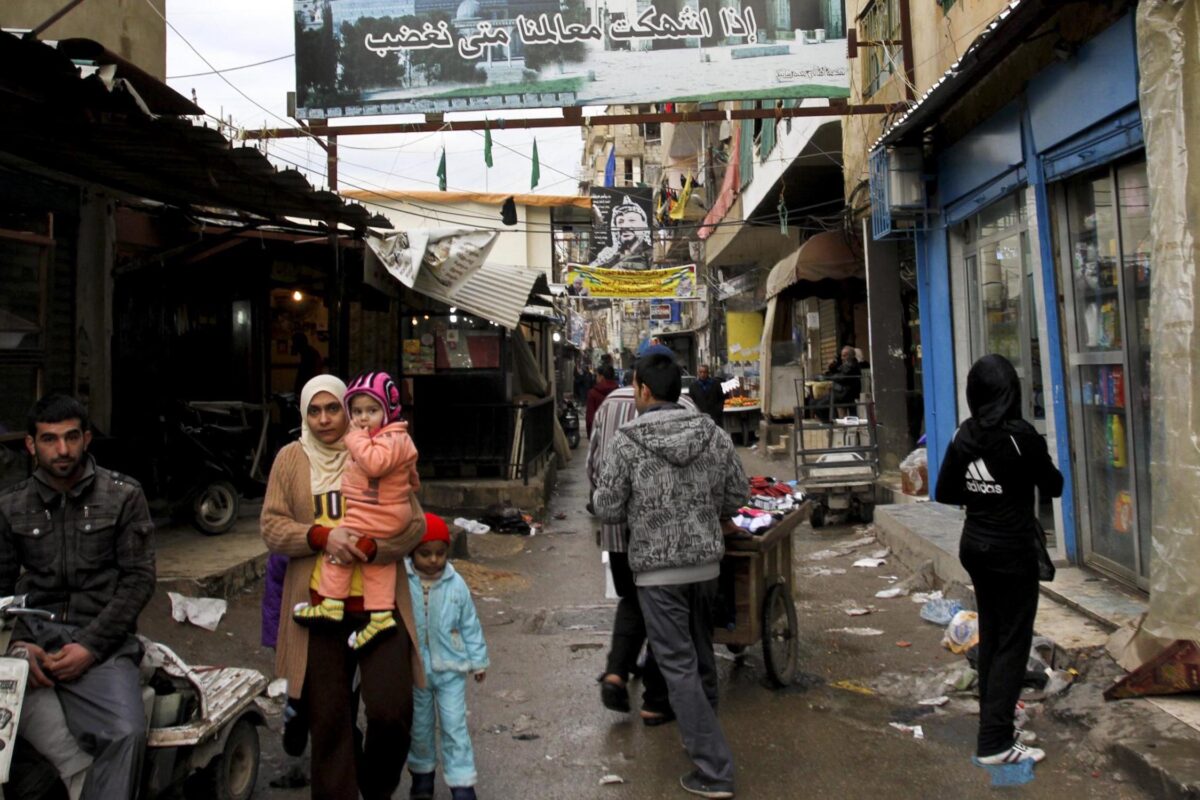The Situation of Palestinian Refugees in Lebanon
Since the Nakba in which Israel expelled over 750,000 Palestinians, Palestinians Refugees in Lebanon have faced a challenging existence marked by statelessness, marginalization, and economic hardship.
Today, around 450,000 Palestinian refugees are registered with the United Nations Relief and Works Agency (UNRWA) in Lebanon, but the true number living in the country is estimated to be lower. These refugees reside in 12 official camps and numerous informal camps where conditions are often dire.
United Palestinian Appeal (UPA) has been actively involved in supporting Palestinian Refugee camps, including communities in the camps of Nahr Bared, Burj Barajneh, Ein El Helweh, El Buss, and Rashidieh through various initiatives aimed at alleviating their struggles and enhancing their quality of life.
The Sabra and Shatila Massacre
The Sabra and Shatila massacre, which occurred in September 1982, was a brutal event that further compounded the suffering of Palestinian refugees.
Thousands of Palestinian civilians were killed in the Sabra and Shatila Refugee camps in Beirut by the right-wing Lebanese militia (Phalange), with the instigation and backing of the Israeli military.
The murders took place between September 16th and 18th and resulted in an estimated death toll of nearly 3,500 civilians.
Legal Exclusion and Statelessness
Palestinian refugees in Lebanon are not granted citizenship, leaving them stateless and without the basic rights that citizenship affords. Unlike in some other Arab countries, where a portion of Palestinians have been given greater rights, Lebanon has resisted this process.
This legal exclusion severely limits Palestinians’ access to the labor market, healthcare, and social services. They are barred from practicing in multiple professions, including law, medicine, and engineering, forcing many into low-wage jobs in the informal sector.
Living Conditions in Refugee Camps
Most Palestinian refugees in Lebanon live in overcrowded camps, the largest of which is Ain al-Hilweh, home to over 50,000 people. Set up as temporary shelters, they have become permanent due to Israel’s refusal to allow refugees to return home.
Conditions in the camps are poor, with inadequate infrastructure, sanitation, and access to clean water. Overcrowding exacerbates these problems, leading to frequent power outages, water shortages, and health issues.
Education and healthcare services in the camps are largely provided by UNRWA, but chronic underfunding has strained the agency’s ability to meet the population’s needs. Schools are overcrowded, and healthcare services are often limited to basic care, leaving many serious medical issues unaddressed.
The Role of UPA
United Palestinian Appeal (UPA) has been supporting Palestinians in Lebanon across several refugee camps through various community-focused initiatives.
In the Palestinian Refugee camps of Nahr Al Bared and Burj Al Barajneh, UPA provided hundreds of hot meals to the elderly and engage elders in recreational activities like dabkeh and singing to enforce their sense of community and purpose.
UPA has rehabilitated green spaces in these camps, enabling elderly refugees to grow crops like vegetables and berries, improving nutrition and well-being. Additionally, the organization facilitates intergenerational activities that allow older refugees to pass down Palestinian traditions, such as dabkeh and traditional recipes, to younger generations, helping preserve their cultural heritage and enforce their sense of belonging enhancing their engagement in the community.
Our team also provides critical care to over 300 patients, offering services from psychiatrists, psychologists, and occupational therapists. Despite challenges from regional instability, UPA’s mental health project continue to operate, and we provide online sessions when people cannot reach the center, providing treatment to refugees in need, and patients in the south of Lebanon.
A Future in Limbo
For more than seven decades, Palestinian refugees in Lebanon have lived in a state of limbo, with no resolution to their plight in sight. The situation of Palestinian refugees in Lebanon highlights the enduring consequences of the Israeli occupation of Palestine, with generations of refugees living in conditions of poverty, exclusion, and insecurity.
UPA remains committed to improving the lives of these refugees through dedicated support and community engagement, working tirelessly to bring hope and relief to those in need.

